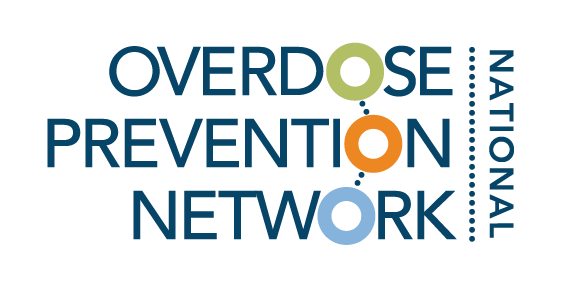
Resource Library
Toolkits, guides, and other resources vetted by experts in overdose prevention.
Filter by category and tags, or search by keyword (ex. COVID-19, harm reduction).
Preventing Overdose and Reducing Drug-Related Harm Policy and Implementation Guides for State and Local Change
ChangeLab Solutions has developed guides that offer a range of evidence-based policy strategies and a roadmap to policy implementation that can advance equity and prioritize care over punishment for people who use drugs. The strategies are intended to support state and local decision makers, government agency staff, public health practitioners, and community members in considering policies to prevent overdose and reduce other drug-related harm in their communities.
2023 State of the States: Legislative Roadmap for Reducing Overdose Deaths and Increasing Access to Treatment (the Roadmap)
The Legislative Analysis and Public Policy Association developed the 2023 State of the State, which guides state leaders on the most effective approaches to addressing the opioid and other drug epidemic by identifying 10 evidence-based policy approaches to reduce overdoses. Each of the 10 strategies outlined in the Roadmap points to a specific type of policy that states can implement to reduce overdose deaths and increase access to substance use treatment.
Substance Use Disorder (SUD) Prevention 101: Key Concepts in Prevention
The Center for Applied Research Solutions created this presention on key concepts in prevention of substance use disorders. This presentation covers the 6 major prevention strategies that it has developed that cover the following topics for you to apply in your overdose prevention work: information dissemination, education, alternatives, problem ID and referral, community based-processes, and environmental prevention strategies.
Focus on Prevention: Strategies and Programs to Prevent Substance Use
The U.S. Department of Health and Human Services(HHS), Substance Abuse and Mental Health Services Administration (SAMHSA), has developed this guide as a starting point to help a wide range of groups and communities move from concerns about substance use to proven and practical solutions. This guide offers brief, easy-to-read information that organizations can use to plan and deliver prevention strategies in a wide array of settings, through a variety of methods.
COPN Accelerator 4.0 Program: Key Considerations for Centering Equity in Overdose Prevention
This handout provides the key considerations for centering equity in overdose prevention based on Dr. Lauren Powell's presentation to the COPN Accelerator 4.0 Coalitions.
Addressing Opioid Use Disorder in Emergency Departments: Expert Panel Findings
The National Council for Mental Wellbeing hosted a technical experts’ panel (TEP) to identify best and promising practices to engage individuals surviving overdose and assist individuals with opioid use disorder (OUD) presenting in emergency department (ED) settings. This report identifies key policy and practice recommendations informed by existing research, case examples and findings from the TEP.
Training and Educating Public Safety to Prevent Overdose Among Black, Indigenous, and People of Color Communities
To better understand the training and education needs of public safety personnel related to preventing overdose in BIPOC communities, and to inform the development of future trainings, the National Council, with the support of the CDC, conducted an environmental scan that included a literature review and a series of key informant interviews and roundtables. The key findings from these activities are explained in this guide.
Supporting Telehealth and Technology-assisted Services for People Who Use Drugs: A Resource Guide
This resource guide created by the National Council for Mental Wellbeing (National Council) aims to help harm reduction organizations, SUD treatment providers and other organizations that serve PWUD overcome challenges associated with implementing telehealth and technology-assisted services and leverage these advances to help improve the health and wellness of PWUD.
Getting Candid: Framing the Conversation Around Youth Substance Use Prevention
The National Council for Mental Wellbeing (National Council) created this guide with the purpose of equipping providers with substance use prevention messaging and share guidance on how to effectively deploy this messaging with middle and high school age youth.
Fostering Resilience and Recovery: A Change Package
To better address trauma in primary care, Kaiser Permanente and the National Council for Mental Wellbeing (National Council) launched the Trauma-Informed Care Primary Care: Fostering Resilience and Recovery initiative to develop, test, disseminate and scale a field-informed Change Package. Implementing trauma-informed approaches within primary care marks a fundamental shift in care delivery that supports improved utilization of services, improved patient outcomes, increased staff satisfaction and healthier work environments.
Opioid Overdose Basics
The National Harm Reduction Coalition’s training guide on opioid overdose basics provides an overview of opioid overdose basics, what is an overdose?, understanding naloxone, overdose risks & prevention, recognizing opioid overdose, responding to opioid overdose, and overdose FAQs.
Self-Care Strategies Worksheet
This worksheet was developed by Cypress Resilience Project in partnership with PHI Center for Health Leadership and Impact for the Spring 2022 COPN Convening, which focused on toxic stress and burnout for individuals working in substance use and overdose prevention.
Stimulant Safety: Getting Amped Up to Reduce Harms When Using Stimulants
This resource from NASTAD offers education on the reasons people take stimulants, including the potential positive aspects to use and potential risks of use; how to minimize harm, reduce stigma around stimulants, and support peoples’ positive experiences.
Talking about Health Equity
Among the general public, the term equity isn’t widely understood. FrameWorks researchers have found that most people associate the term with financial topics, as in home equity or equity in a business. For communicators, this means that if you’re using the term, it’s vital to pair it with a clear explanation. Use this resource to help you with framing your message around equity.
Explaining the Social Determinants of Health
Public health experts use the term “social determinants of health” to refer to the idea that non-medical factors such as geography, income, and education have a significant effect on health. However, communications researchers have found that this term doesn’t make sense to the average person. What’s more, the phrase can even leave mistaken impressions that the “social determinants of health” has something to do with socialism or a belief that people lack free will. Use this resource to understand and help others understand the social determinants of health.
DHCS Frequently Asked Questions: Janssen and Distributors Settlement Funds
This document is intended to answer frequently asked questions (FAQs) from California Participating Subdivisions receiving allocations from the California Abatements Account as part of the Janssen & Distributors (J&D) Settlements. A Participating Subdivision is a city or county eligible to receive or is receiving funds from one or both of the J&D Settlements.
DHCS’s Guiding Principles for Participating Subdivisions
The California Department of Health Care Services (DHCS) is tasked with oversight of California’s opioid settlement funds1 and monitoring use and expenditure compliance by Participating Subdivisions. DHCS has developed this resource to help Participating Subdivisions consider potential uses of opioid settlement funds and to promote the uptake of high-impact opioid remediation activities.
Do No Harm Guide: Applying Equity Awareness in Data Visualization
Through rigorous, data-based analysis, researchers and analysts can add to our understanding of societal shortcomings and point toward evidence-based actions to address them. But when data are collected and communicated carelessly, data analysis and data visualizations have an outsized capacity to mislead, misrepresent, and harm communities that already experience inequity and discrimination. This guide and its associated toolkits focus on how data practitioners can approach their work through a lens of diversity, equity, and inclusion.
Wound Care & Medical Triage for People Who Use Drugs and the Programs That Serve Them
This comprehensive guide provides information and recommendations regarding general health, safer use practices, common viral, fungal, parasitic, and other injection-related infections, overdose and overamp, tapering, withdrawal, medications for opioid use disorder, and seeking medical care.
Harm Reduction Hacks Microsite
Harm Reduction Hacks is a comprehensive microsite and resource to guide organizations developing new and/or with existing syringe services programs (SSPs) in program design, implementation, and organizational sustainability. This resource was developed through the CDC-funded National Harm Reduction Technical Assistance Center.










